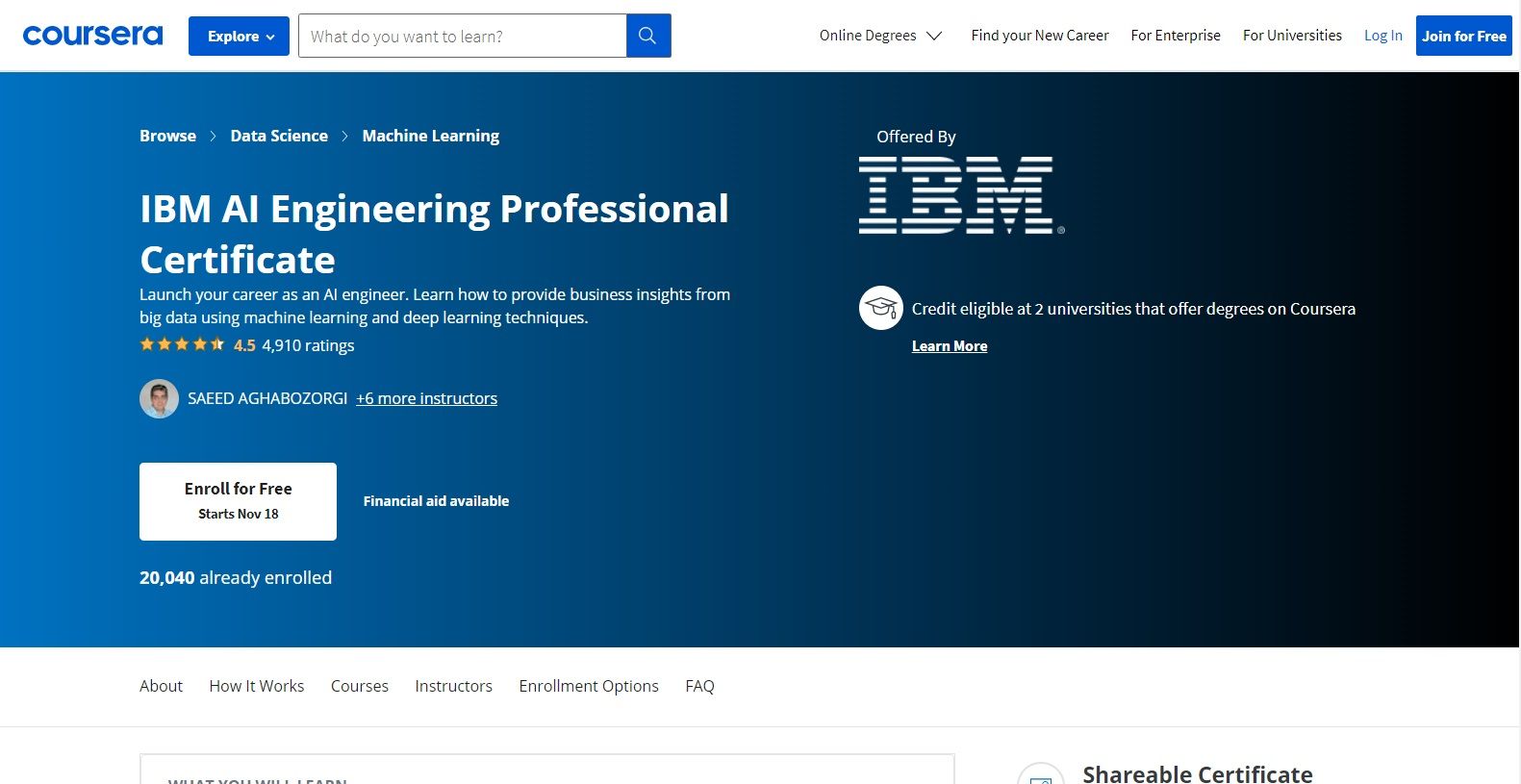Artificial intelligence applications are increasing rapidly as many enterprises look to automate as many tasks as possible to increase productivity and efficiency and save time. Consequently, the demand for AI engineers is at an all-time high.
Therefore, now is the best time to get into this budding field and build your relevance in the workspace. In this article, you will find the steps to take to become a successful AI engineer.
Who Are Artificial Intelligence (AI) Engineers, and What Do They Do?
AI engineers are tech professionals who develop software, processes, systems, or tools that use machine-learning techniques to analyze human behavior and perform tasks autonomously. In other words, AI engineers devise means to increase the efficiency and productivity of a company's operations.
The functions of an AI engineer in a company include the following:
- Automate processes through machine learning.
- Build and deploy machine learning algorithms.
- Create, test, and deploy AI models and systems.
- Develop and manage AI infrastructure (tools and systems).
- Liaison between software development and data science teams.
- Use AI to develop new and improved capabilities and operations.
- Build systems that automatically analyze data and improve business decisions.
- Convert machine learning models into application programming interfaces (APIs) to allow access by other applications.
As you can see, the services of AI engineers are of tremendous benefit to companies across all industries.
How to Become an Artificial Intelligence (AI) Engineer
Now that you know what AI engineers do, the question is: how do you become one? Follow these steps.
1. Get a Computer Science or IT Degree, Specializing in Artificial Intelligence
A professional engineering career like AI engineering typically requires getting at least a bachelor's degree in any information technology or computer science-related field. Getting a college degree is important because it helps you understand basic computer and data science principles and how you can apply them as an AI engineer.
Ultimately, you can pursue a master's degree in artificial intelligence, machine learning, or data science. That way, you get an in-depth knowledge of the profession. Moreover, most companies will require a degree before considering you for employment. Hence, getting a degree is very important if you want to become a professional AI engineer.
2. Earn Professional Certifications
Acquiring professional certificates is a great way to show your worth as an AI engineer because a certificate is obtained when you complete a course or training on the subject. And participating in professional certification programs increases your knowledge and gives you the skills you need to build a successful career.
Furthermore, obtaining professional certificates gives you an added advantage in the ever-competitive labor market and ups your chances of being selected for top roles. Therefore, consider getting professional certificates through training or completing a professional course and exam from leading institutions. These include:
- IBM AI Engineering Professional Certificate
- IBM Applied AI Professional Certificate
- Certified Artificial Intelligence Engineer (CAIE™) - United States Artificial Intelligence Institute (USAII™)
- Microsoft Certified: Azure AI Engineer Associate
3. Learn the Technical Skills
AI engineering involves technical operations that require an arsenal of technical skills to execute them. AI engineering requires the understanding of top machine learning algorithms, such as linear regression, and deep learning algorithms, such as recurrent neural networks, and how to utilize them using a framework.
Additionally, AI engineers handle large quantities of data; hence you should be familiar with big data technologies, like MongoDB, to help you manage data. Moreover, AI engineer jobs typically require a solid background in programming languages. Hence, you should be fluent in the best programming languages for AI development, like Python and C++. Furthermore, knowledge of algebra and statistics will help you to develop and implement various AI and Machine Learning models.
4. Build Soft Skills
AI engineers mostly work in teams with other professionals; hence you must possess numerous soft skills. For one, you must possess excellent communication skills to effectively work with others and express your ideas in the group.
Furthermore, you must be attentive to detail and possess analytical thinking when working with data. In addition, developing business intelligence skills will help you build AI models that help companies make better business decisions. It would also be helpful if you were deadline-driven, so you could complete tasks by the deadline.
5. Build a Professional Network
As AI engineers work alongside other professionals, like data scientists and software developers, networking with other professionals in the field is a great way to grow your relevance in the industry. One guaranteed benefit of networking with other experts in the industry is you are sure to learn something new and stay abreast of the latest innovations in the industry.
Additionally, industry networking helps you find and get job opportunities easily. Furthermore, networking enables you to build a team of engineers with whom you can execute huge projects easier and faster. Therefore, find a professional association/group you can join and build your network.
6. Gain Practical Experience
While most companies typically choose individuals with years of experience as AI engineers, you may be disadvantaged if you're just getting into the field. However, you can gain practical experience by participating in a bootcamp or training. The projects you complete during this training can count for your experience in the field. Also, you can undertake personal projects with real-world applications.
Furthermore, you can gain experience in the industry by taking on entry-level roles and working your way up. Accordingly, the number of real-life projects you complete can count as your experience level.
7. Prepare a Resume and Apply for AI Engineering Jobs
After learning the ins and outs of AI engineering, getting the required skills, and trying your hands on real-life projects, prepare a technical resume highlighting your expertise and depth of knowledge. It is important to include both hard skills and soft skills on your resume to ensure you are considered for a position.
When preparing your resume, include any professional certifications and your proficiency with the required AI tools, programming languages, and other technical skills to increase your chances of being selected for the job. After that, apply for AI engineering jobs and related roles. Also, update your CV with the latest experience, skills, or education. That way, you can build a viable CV that documents your advancement.
Become an Artificial Intelligence Engineer Today
Artificial intelligence continues to contribute to the growth of businesses, the development of industries, and the global economy as an increasing number of organizations turn to AI applications to increase efficiency and productivity and save time.
Consequently, the career is expected to continue growing as the demand for AI solutions invariably means an increasing demand for AI professionals. Therefore, becoming an AI engineer today allows you to enjoy this growing industry's many exciting perks and lucrative financial rewards.





